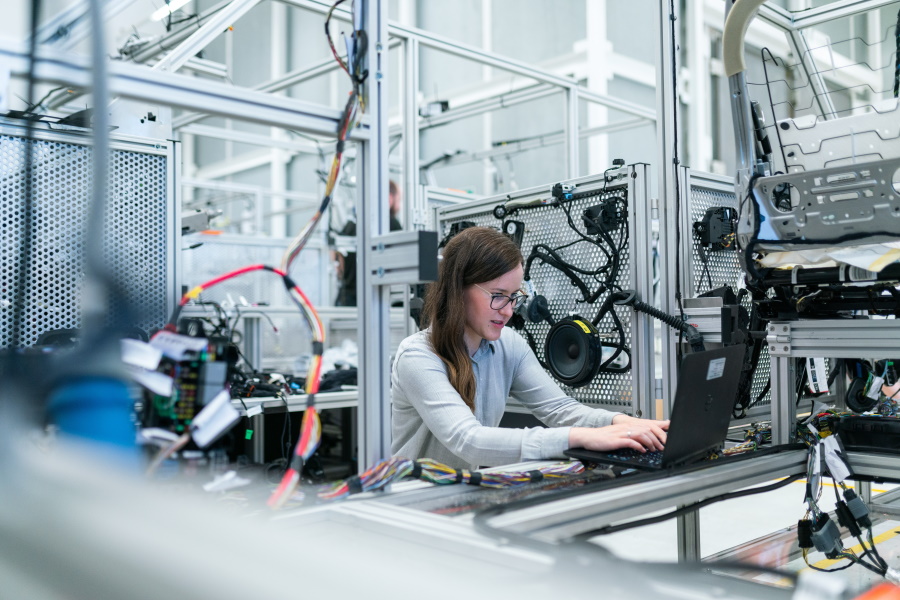
What is a Smart Factory? Learn about this new, promising concept.
If you’re wondering what a Smart Factory is, we’ve got good news for you: you probably already know half of it. The last name “smart” is often used in technology. Smartphones and smart TVs are technological devices we all know and use in our everyday life. This same last name is used for the Smart Factory: a production center in which connectivity functionalities and automation are used to achive a better performance.
Let’s talk about them!
Fourth Industrial Revolution
There are more and more intelligent objects day by day, both with professional and domestic purposes (printers, drones, robots, televisions, refrigerators, coffee machines …), and this is due to the 4.0 revolution: the current technological era in which digitization, artificial intelligence and the “internet of things” prevail. One of the great challenges of this era is to bring this entire revolution to industry and factories as well. For example, through intelligent machinery that favors more efficient production processes.
What is a Smart Factory and what how does it work
A Smart Factory is recognized by its high level of digitization and connectivity. The 4.0 revolution of which we have spoken previously would be part of the day-to-day of all processes. Here are some practical examples:
- The machinery of a Smart Factory can keep a record of progress and inform the quality or traceability departments about the status of production.
- Based on these analyzes carried out by the machines themselves, more efficient and faster decisions can be made to improve the production process.
- Smart Factories can be equipped with robots that are capable of “learning”. They adjust their own parameters automatically as a result of new instructions.
- Numerous technological analysis tools can detect inefficiencies in the chain, and inform any department involved.
In a Smart Factory, departments are always interconnected with each other. The factory is not only a means to produce, but also a source of interconnected information for the improvement of decision-making for the business.
The keys to its success
- Information:
Information is one of the most important assets for a company. Businesses can only aspire to efficiency and continuous improvement if they have access to high value information. A Smart Factory could offer a company this deep knowledge of itself, interconnecting different departments and functions, and automatically integrating the data that the factory itself generates.
- Environment:
In addition, by participating in the reduction of waste and the efficient use of raw materials, Smart Factories are considered to be environmentally friendly industries in which the use of renewable energies can also be integrated. This is one of the most important keys to success for smart factories, since they open the doors to a future in which large industrial buildings are not synonymous with high emissions and pollution.
- Cost reduction and profit increase:
But the most interesting key for companies is undoubtedly the possibility of increasing profits. Through these robotic solutions and automated processes, the production volume could grow without it having to mean an increase in costs. This allows businesses to play with new margins and rethink their models.
In conclusion
What about Keyplan? We are aware of this continuous evolution and adaptation of industries, that is why we are present in the implementation and optimization of new production lines, as well as in the design of production processes committed to a sustainable environmental approach in different sectors.
Engineering has to do with optimization and efficiency, and in particular industrial engineering plays an important role in the future of factories. We can access more and better technologies day by day, which are the key tool for a better future.





